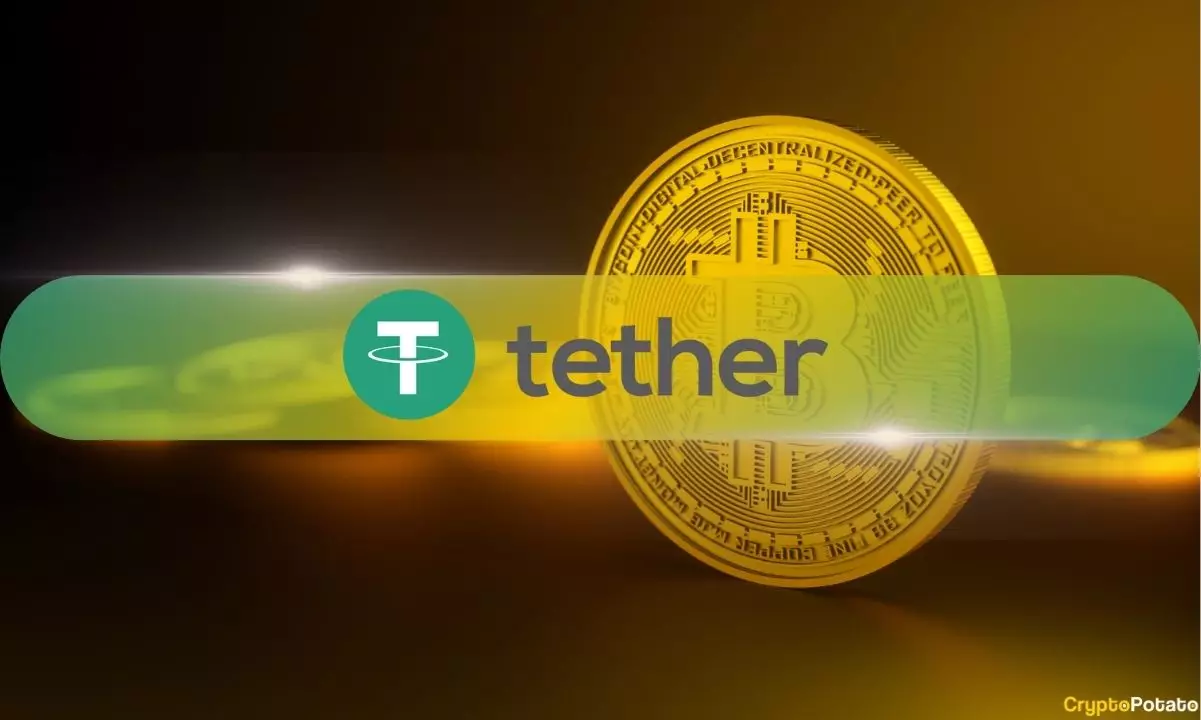Tether, one of the most prominent players in the cryptocurrency market, has come under the spotlight following revelations by its CEO, Paolo Ardoino, regarding the company’s reserve assets. In a climate of heightened scrutiny fueled by allegations of a federal investigation in the United States, Ardoino disclosed that Tether holds a staggering $5.58 billion in Bitcoin, $3.87 billion in gold, and roughly $100 billion in U.S. Treasury bonds. Notably, these reserves are pivotal as they underpin the value of USDT, Tether’s stablecoin, which recently reached a market capitalization of approximately $120 billion. While the vast sums outlined appear impressive, they raise critical questions about the transparency of Tether’s operations and their implications in a world increasingly concerned with regulatory oversight.
Compounding the situation are reports from the Wall Street Journal indicating that the U.S. Attorney’s Office in Manhattan is probing Tether for potential links to money laundering and illegal activities. Sources allege that the company may have unwittingly facilitated various illicit acts, including drug trafficking and terrorism financing, as well as potentially aiding sanctioned entities such as Russian arms dealers. Ardoino’s subsequent emphatic denial of these claims — labeling the allegations as “unequivocally false” — highlights the often contentious relationship between cryptocurrency firms and regulatory bodies. However, the fact that such inquiries are being pursued casts a long shadow over the firm, raising doubts about how effectively Tether can distance itself from nefarious activities within the space.
The ramifications of these allegations extend beyond Tether. The scrutiny placed on its operations amplifies ongoing concerns surrounding transparency within the stablecoin market. Critics have long questioned whether Tether’s reserves sufficiently back the USDT’s dollar peg, and these latest allegations fuel additional skepticism. Furthermore, discussions about Tether’s involvement in countries like Venezuela and Russia deepen anxieties regarding its operational ethics. The question of whether its actions assist in circumventing international sanctions remains pivotal. As users of stablecoins seek dependable alternatives to traditional banking, trust becomes crucial, and every inquiry into Tether’s practices threatens to undermine that trust.
In response to the allegations, Ardoino posited that Tether has always aimed to cooperate with law enforcement to help combat illegal activities, referencing the recovery of over $109 million tied to illicit occurrences since 2014. While this statement demonstrates a semblance of responsibility on Tether’s part, it does not fully dispel the concerns raised by the investigation. True engagement with law enforcement can mitigate criminal activity, but questions linger about the inherent risks within an organization operating mainly in unregulated spaces.
As Tether navigates through turbulent waters, its commitment to transparency and regulatory compliance will be put to the test. It is essential for Tether to address the root concerns raised by investigations and to foster trust among users and regulators alike. The cryptocurrency landscape is evolving, and as digital assets gain wider acceptance, Tether must prioritize ethical operations and accountability to safeguard its future — lest it find itself ensnared by the controversies that frequently shadow the space.














Leave a Reply